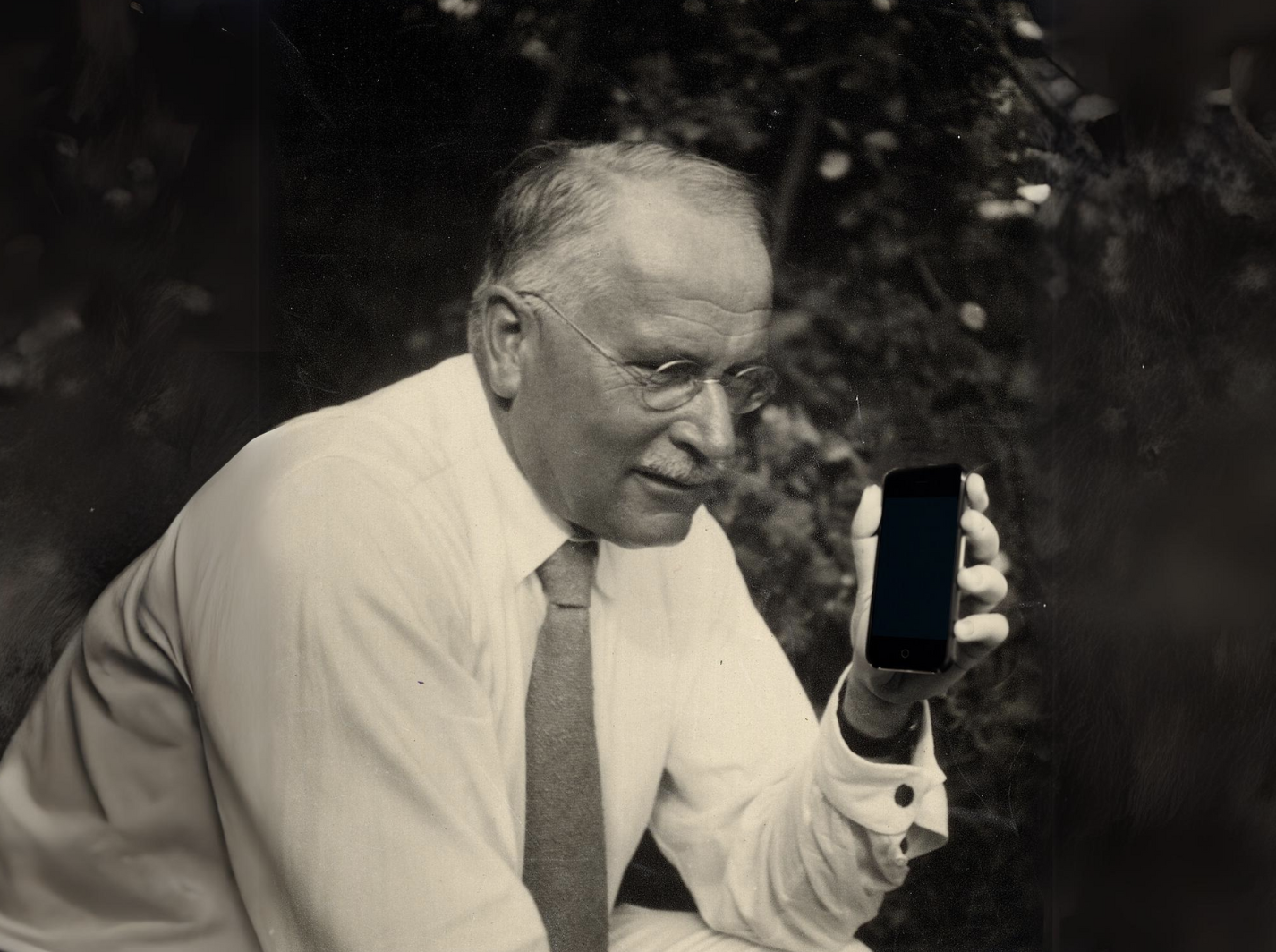We Are The Anxious Generation

The eminent psychologist, Carl Jung, coined a term that nicely describes the phenomenon of seeing others as we are and not necessarily as they are. It’s called projection. All of us, from parents to politicians are guilty, at one time or another, of assigning traits on others that are really a part of our own psyche.
And so I look at the cultural phenomenon and best selling book bonanza that is “The Anxious Generation: How the Great Rewiring of Childhood Is Causing an Epidemic of Mental Illness” by Jonathon Haidt with a skeptical eye. There are many who have offered thorough critiques of the book’s main argument that phones are to blame for the teen mental health crisis. Reviewers note that correlation does not equal causation. And that the simplistic “solutions” offered up in the second half of the book, keeps us – parents, politicians, educators – from addressing the root causes of a wide range of young people’s mental and emotional challenges.
What the Haidt zeitgeist has unhelpfully done is to encourage a wide swathe of otherwise reasonable adults to project their own fears and concerns about new technology onto their offspring. When faced with our kids’ unsettling behavior, we place our own anxieties about strange sounding apps and incomprehensible online experiences onto our young people’s shoulders, burdening them with our fear rather than meeting them with our sympathy and understanding. One of the most important jobs of a parent, after all, is to not pass on our fears to our kids.
The Haidt effect is also seen in the rash of measures at the state and local levels to ban phones in schools or to ban social media altogether from anyone under 16. Crafting legislation based on unsettled science is a recipe for unintended consequences that create their own problems and backlash.
That is not to dismiss the reasonable concerns of this generation of parents and caregivers who struggle to find the right balance between allowing their kids the latitude to explore, enjoy and create content online while keeping them away from adult content, exploitation and worse. Getting the amount of screen time “right” is a never ending battle, particularly as school assignments and projects have migrated online. Parents have the unenviable task of policing a medium that is lightly regulated, global in nature and growing at an exponential rate. It’s overwhelming.
At the same time, making simplistic causal links between phone use and teen mental health leaves out a larger and more complex picture of what’s going on with young people’s state of mind. One fascinating study that emerged from the Harvard Graduate School of Education found a link between the fears and anxieties of parents and those of their offspring. Over a third of teens reported having one parent with anxiety or depression and almost 40% of teens saying they were at least “somewhat worried” about the mental health of one of their parents. The data indicate that depressed teens are about five times more likely than non depressed teens to have a depressed parent, and that anxious teens are about three times more likely than non-anxious teens to have an anxious parent. Or as the report concludes: “It would be just as right to sound the alarm about parents’ mental health as about teens’ mental health”.
Even Ezra Klein mused in a recent New York Times podcast “how much the debate over screen time and kids might just be adults projecting our own discomfort with our own screen time.”
What we need when thinking about teens and their phones are thoughtful restrictions, not blanket bans. And, ideally, restrictions which are reached with input from young people themselves. When you involve teens (and younger kids) in setting the rules of online use, they are far more likely to respect them and to monitor themselves. And while you’re setting the rules with your kids’ active involvement, ask them about what fair sanctions look like if they break the rules. You may be surprised by how willing they will be to offer up (reasonable) consequences.
So while labeling an entire generation “anxious” and mistaking correlation with causation might get a lot of attention (and sell a lot of books), let’s do the hard work of facing our own fears and anxieties as parents, teachers and politicians. Let’s sit down with our kids and respectfully discuss our concerns about their phone use and together work out how best to address them. Have a good long look in the mirror and confront our own bad tech habits. Let’s be a good digital role model to our kids and try our best not to project our own fears onto an entire generation.
*Image designed by Jana Folmert, FOSI Brand Marketing & Strategic Communications Consultant

 Family Online Safety Institute
Family Online Safety Institute